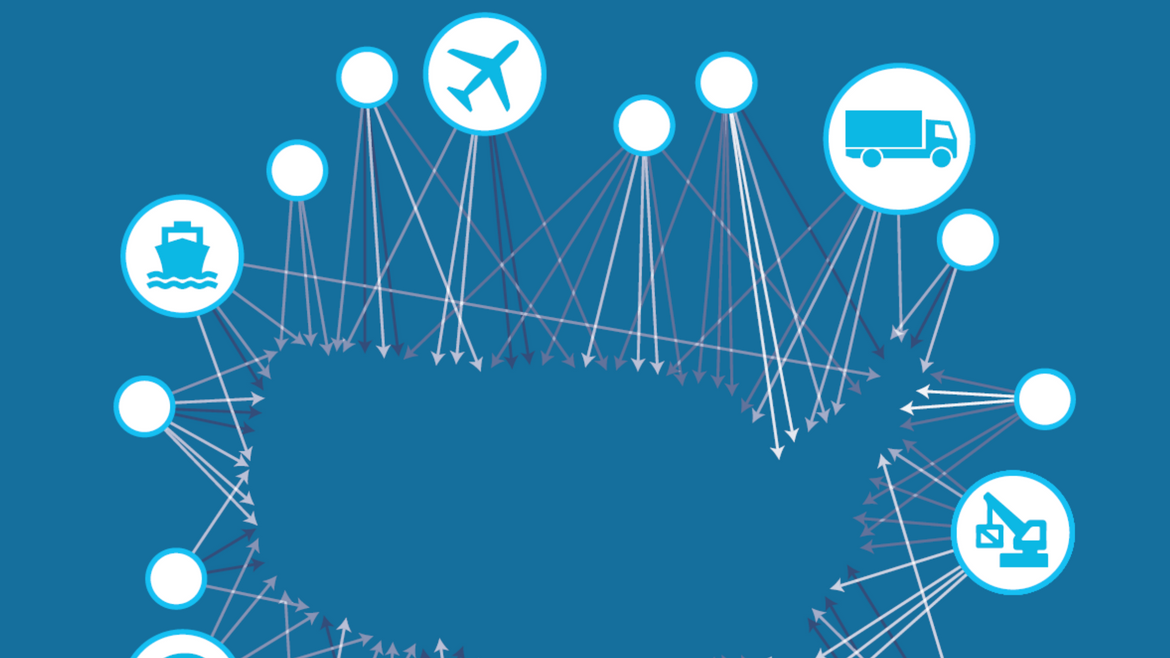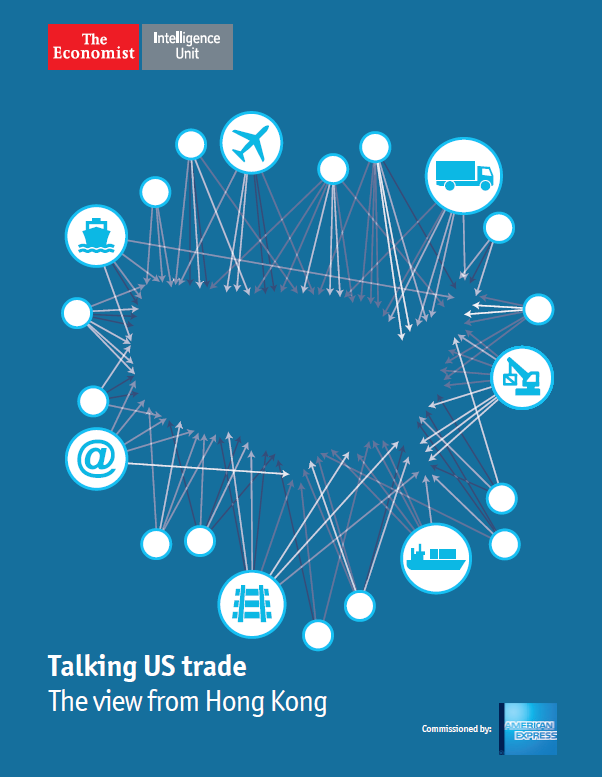This article is based on the responses from 50 Hong Kong executives to a survey conducted for the report, Terms of trade: Understanding trade dynamics in the US, written by The Economist Intelligence Unit (EIU) and commissioned by American Express. It examines key aspects of trading with the world’s largest economy from the perspective of foreign companies.
Talking US trade: The view from Hong Kong
Download Full Report
More from this series

article
Talking US trade: The view from Hong Kong
Download the article Talking US trade: The view from Hong Kong At a time of low global growth, slowing volumes of

article
Talking US trade: The view from Hong Kong - Traditional Chinese
本文基於《貿易條款:了解美國的貿易動態》(Terms of trade: Understanding trade dynamics in the US
Related content

Terms of Trade: Understanding trade dynamics in the US
The findings are based on an executive survey of 531 companies that trade with the US, conducted by The EIU in March and April 2016, as well as desk research and interviews with experts.
Key findings:
- Companies are optimistic about future trade activity with the US. Two-thirds of respondents in our survey anticipate that their company’s trade with the US will increase over the next five years, with over 43% expecting an increase of 10% or more.
- Companies face a number of issues in trading with the US, but none of these are perceived to be insurmountable. Survey respondents cited exchange-rate volatility (41%), transport costs and delays (32%), trade-related infrastructure (32%) and making payments (32%) as their top challenges.
- The overall quality of trade-related infrastructure in the US is rated highly. Deeper investigation, however, points to shortcomings with ports and land borders, revealing that infrastructure development has not kept pace with the increase in trade activity and requires significant investment for expansion and automation.
- Delays at ports and land-border crossings arise primarily as a result of regulatory requirements. The top sources of regulatory challenges include customs duties and valuation (26% of respondents), licensing requirements (23%) and product-quality standards (20%).
- The post-9/11 security paradigm shift has increased the administrative requirements faced by foreign companies.
- Trade-related regulatory challenges impose significant additional costs on foreign companies. Over 40% of survey respondents indicate that trade-related regulatory challenges increase the cost of doing business by 10-30%, with an additional 15% reporting an increase of more than 30%.
- Payment-related challenges arise from a range of issues, particularly process inefficiencies (52%) and limited payment visibility (52%).
- Foreign companies look to key developments in policy and politics to understand the outlook for trading with the US, closely tracking the rhetoric on the campaign trail for the 2016 US presidential election.
- The negotiation of new trade deals, the Trans-Pacific Partnership (TPP) in particular, will bring new opportunities. Survey findings strongly corroborate this sentiment: 49% of respondents expect the TPP to improve opportunities for trade with the US market moderately, while an additional 29% believe it will improve opportunities substantially.

The Hinrich Foundation Sustainable Trade Index 2018
Yet the enthusiasm in Asia for trade does not appear to have waned. This broad societal consensus behind international trade has enabled Asian countries to continue broadening and deepening existing trading relationships, for example, by quickly hammering out a deal for the Comprehensive and Progressive Agreement for Trans-Pacific Partnership (CPTPP) in early 2018 following the US’s withdrawal from its predecessor in 2017.
Asia, then, finds itself in the unique position of helping lead and sustain the global economy’s commitment to free and fair trade. It is in this context that the need for sustainability in trade is ever more crucial.
The Hinrich Foundation Sustainable Trade Index was created for the purpose of stimulating meaningful discussion of the full range of considerations that policymakers, business executives, and civil society leaders must take into account when managing and advancing international trade.
The index was commissioned by the Hinrich Foundation, a non-profit organisation focused on promoting sustainable trade. This, the second edition of the study, seeks to measure the capacity of 20 economies—19 in Asia along with the US—to participate in the international trading system in a manner that supports the long-term domestic and global goals of economic growth, environmental protection, and strengthened social capital. The index’s key findings include:
Countries in Asia, especially the richer ones, have broadly regressed in terms of trade sustainability. Hong Kong is developed Asia’s bright spot, recording a slight increase in its score and topping the 2018 index. Several middle-income countries perform admirably, led by Sri Lanka. For the economic pillar, countries generally performed well in terms of growing their labour forces as well as their per-head GDPs. For the social pillar, sharp drops for some countries in certain social pillar indicators contribute to an overall decline. For the environmental pillar, with deteriorating environmental sustainability in many rich countries, China, Laos and Pakistan are the only countries to record increases in scores. Sustainability is an ever more important determinant of FDI and vendor selection in choosing supply-chain partners. Companies are improving the sustainability of their supply chains by restructuring and broadening relationships with competitors and vendors.
The Global Illicit Trade Environment Index 2018
To measure how nations are addressing the issue of illicit trade, the Transnational Alliance to Combat Illicit Trade (TRACIT) has commissioned The Economist Intelligence Unit to produce the Global Illicit Trade Environment Index, which evaluates 84 economies around the world on their structural capability to protect against illicit trade. The global index expands upon an Asia-specific version originally created by The Economist Intelligence Unit in 2016 to score 17 economies in Asia.
View the Interactive Index >> Download workbook


